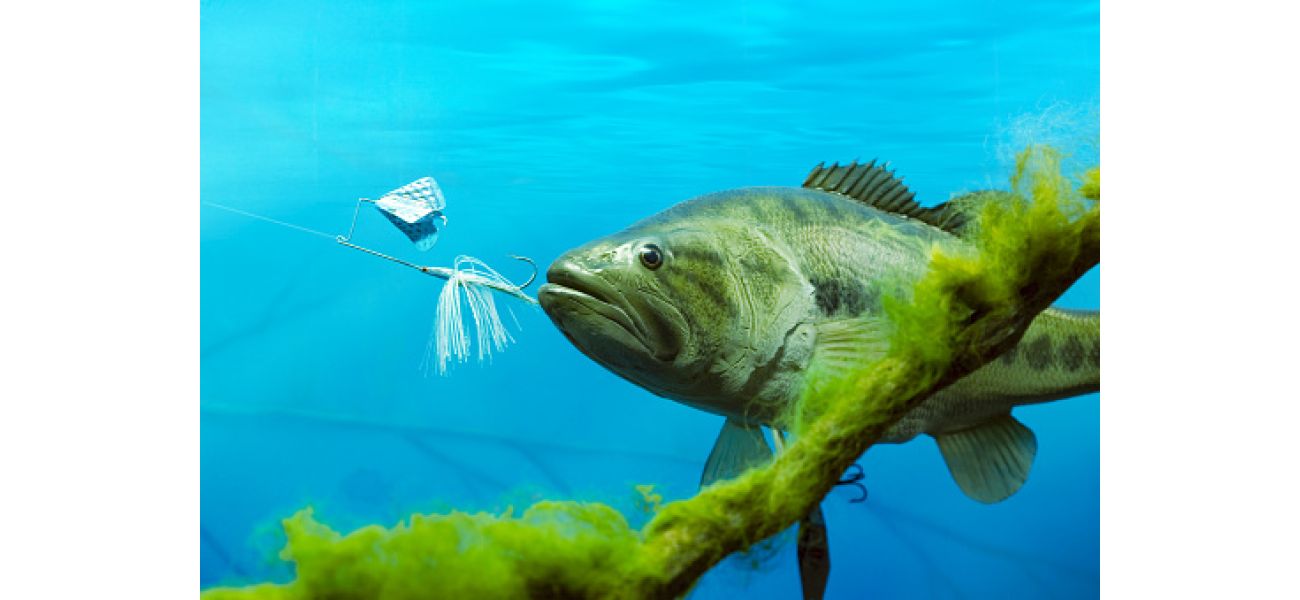Is fishing bad? Would you want a hook in your mouth?
Is catch and release fishing actually causing harm instead of reaping benefits, as many anglers believe?
December 18th 2024.

Angling, also known as catch and release fishing, has been a beloved activity for many anglers in the UK. It's a practice that allows for the benefits of fishing without causing harm to the fish. However, there have been recent concerns about whether catch and release fishing is actually causing more harm than good. So, we want to hear from you on this topic and others in our MetroTalk discussion. Share your views and opinions in the comments section below.
As we enter the first edition of 2025, it's become a tradition for MetroTalk to feature the thoughts and predictions of our discerning readers. So, whether you have thoughts on the current political climate, the rise of Reform, the ongoing culture wars, or the highly anticipated Oasis reunion gigs, we want to hear from you. Your input will set the tone for the year ahead. So, don't hold back and share your views by commenting below. Your contribution could spark a meaningful debate for the rest of the year – Ed.
To participate in the discussion, simply start your comment with the word "VIEWS" followed by your thoughts, your name, and where you live. Alternatively, you can email us at [email protected]. Please note that comments may be edited for legal reasons, clarity, or space.
Now, let's talk about angling. As an angler myself, I can confidently say that we care deeply for our catch and have no intention of causing harm to these magnificent creatures. In fact, the greatest joy for an angler comes from seeing their catch swim off healthily and safely after being released. We, along with other water enthusiasts, are also responsible for keeping an eye out for any incidents of pollution and fish kill. We are the guardians of our waterways, and organizations like the Angling Trust and Fish Legal, funded by fellow anglers, fight against pollution on behalf of everyone. I urge all anglers to join and support these efforts.
Angling is not just a hobby, but it also allows us to connect with nature and has been recognized by the NHS for its therapeutic benefits. So, it's disheartening to hear that research suggests that even when fish are released, they still experience harmful levels of stress that can even lead to their death. As the saying goes, "put yourself in someone else's shoes," or in this case, fins. How would you feel if you had a sharp hook in your lip? It's clear that angling, even in its catch and release form, can cause harm to fish.
Moving on to a different topic, let's discuss the recent incident involving Nigel Farage and a milkshake. Some may argue that it was a waste of police time, and that if it were not a politician involved, it wouldn't have received so much attention. However, I agree with Mr. Farage for once – there does seem to be a double standard in our justice system. The woman who threw the milkshake received a suspended sentence, but if it were anyone else, it would have been brushed off as a minor incident. This is a clear example of a two-tier justice system.
This brings us to the issue of men's mental health and why they often struggle to open up about their issues. When men do try to speak up, they are often met with cynicism and hostility. As part of the This Is Not Right campaign, Metro recently published an article highlighting the violence committed by men against women and girls. In response, some people asked, "What about men?" and even dismissed the topic altogether. This lack of empathy only reinforces why so many men choose to suffer in silence. We need to do better and support each other regardless of gender.
On a different note, let's talk about the WASPI women and the injustice they have faced. These women were promised compensation by the parliamentary ombudsman for being forced to work extra years without proper notification when their pension age was raised from 60 to 65. However, the Labour party, who made this promise, conveniently changed their stance once they came into power. This is a betrayal and a shame on their part.
Finally, as we wrap up this edition of MetroTalk, let's touch upon the issue of littering. We often think of litter as just an eyesore, but it has far-reaching consequences. Cigarette butts, for example, are not easily biodegradable and can cause issues like clogging drains, leading to floods. When they eventually end up in the ocean, they contribute to the already devastating problem of microplastics polluting our seas and harming marine life. So, next time you think about dropping a cigarette butt on the ground, remember the potential harm it can cause.
This concludes our MetroTalk discussion for now. We thank all our readers for their valuable contributions and remind everyone to think before they act. Your actions have consequences, so let's make sure they're positive ones. Until next time, stay safe and keep the conversation going.
As we enter the first edition of 2025, it's become a tradition for MetroTalk to feature the thoughts and predictions of our discerning readers. So, whether you have thoughts on the current political climate, the rise of Reform, the ongoing culture wars, or the highly anticipated Oasis reunion gigs, we want to hear from you. Your input will set the tone for the year ahead. So, don't hold back and share your views by commenting below. Your contribution could spark a meaningful debate for the rest of the year – Ed.
To participate in the discussion, simply start your comment with the word "VIEWS" followed by your thoughts, your name, and where you live. Alternatively, you can email us at [email protected]. Please note that comments may be edited for legal reasons, clarity, or space.
Now, let's talk about angling. As an angler myself, I can confidently say that we care deeply for our catch and have no intention of causing harm to these magnificent creatures. In fact, the greatest joy for an angler comes from seeing their catch swim off healthily and safely after being released. We, along with other water enthusiasts, are also responsible for keeping an eye out for any incidents of pollution and fish kill. We are the guardians of our waterways, and organizations like the Angling Trust and Fish Legal, funded by fellow anglers, fight against pollution on behalf of everyone. I urge all anglers to join and support these efforts.
Angling is not just a hobby, but it also allows us to connect with nature and has been recognized by the NHS for its therapeutic benefits. So, it's disheartening to hear that research suggests that even when fish are released, they still experience harmful levels of stress that can even lead to their death. As the saying goes, "put yourself in someone else's shoes," or in this case, fins. How would you feel if you had a sharp hook in your lip? It's clear that angling, even in its catch and release form, can cause harm to fish.
Moving on to a different topic, let's discuss the recent incident involving Nigel Farage and a milkshake. Some may argue that it was a waste of police time, and that if it were not a politician involved, it wouldn't have received so much attention. However, I agree with Mr. Farage for once – there does seem to be a double standard in our justice system. The woman who threw the milkshake received a suspended sentence, but if it were anyone else, it would have been brushed off as a minor incident. This is a clear example of a two-tier justice system.
This brings us to the issue of men's mental health and why they often struggle to open up about their issues. When men do try to speak up, they are often met with cynicism and hostility. As part of the This Is Not Right campaign, Metro recently published an article highlighting the violence committed by men against women and girls. In response, some people asked, "What about men?" and even dismissed the topic altogether. This lack of empathy only reinforces why so many men choose to suffer in silence. We need to do better and support each other regardless of gender.
On a different note, let's talk about the WASPI women and the injustice they have faced. These women were promised compensation by the parliamentary ombudsman for being forced to work extra years without proper notification when their pension age was raised from 60 to 65. However, the Labour party, who made this promise, conveniently changed their stance once they came into power. This is a betrayal and a shame on their part.
Finally, as we wrap up this edition of MetroTalk, let's touch upon the issue of littering. We often think of litter as just an eyesore, but it has far-reaching consequences. Cigarette butts, for example, are not easily biodegradable and can cause issues like clogging drains, leading to floods. When they eventually end up in the ocean, they contribute to the already devastating problem of microplastics polluting our seas and harming marine life. So, next time you think about dropping a cigarette butt on the ground, remember the potential harm it can cause.
This concludes our MetroTalk discussion for now. We thank all our readers for their valuable contributions and remind everyone to think before they act. Your actions have consequences, so let's make sure they're positive ones. Until next time, stay safe and keep the conversation going.
[This article has been trending online recently and has been generated with AI. Your feed is customized.]
[Generative AI is experimental.]
0
0
Submit Comment





